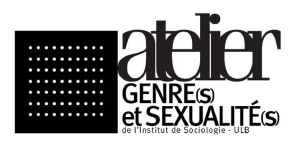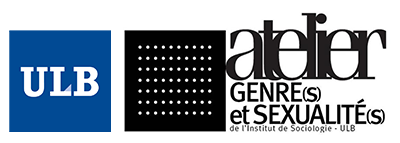Dans la même rubrique
- AGS
- FR
- Le Centre
- Archives de l'Atelier
- 2016
-
Partager cette page
Homophobic epithets in the intergroup frame: heterosexuals' cognitive, affective and behavioral reactions to gay-bashing labels
31 mai

In collaboration with the CRPSY (ULB) and the CECoS (UCL)
Andrea Carnaghi
(University of Trieste)
Salle Doucy (12e étage), Institut de Sociologie (15e étage), Bâtiment S
Avenue Jeanne, 44, 1050 Bruxelles
Abstract
In a recent Italian survey, 80% of those interviewed reported hearing acquaintances using homophobic labels very often (47.4 %) or sometimes (32.6%; Istituto Nazionale di Statistica [ISTAT], 2011). Though this portrays the Italian context as strongly homophobic, sexual prejudice and the use of homophobic labels is also firmly entrenched in other European countries and the US (see, Eurobarometer 2012; Herek 2009). The current research program analyses whether and how homophobic epithets affect heterosexuals’ cognitive, affective and behavioural reactions towards homosexuals. Findings attest that homophobic epithets (vs. category labels) enhance explicit (Study 1) and implicit (Study 2) sexual prejudice, strengthen inter-group bias (Study 3), increase the dehumanization of homosexuals (Study 4), boost heterosexual males’ differentiation from homosexuals (Study 5) and promote physical distance from homosexuals (Study 6). Results are discussed within an inter-group framework.
Biographie
Andrea Carnaghi received the Ph.D. in Psychological Science at the Catholic University of Louvain (Louvain-La-Neuve, Belgium 2004). During his Post-doc position at the University of Padova, he worked on the interplay between language and social cognition. In 2006 he was appointed as an Assistant Professor at the University of Trieste, and in 2014 he was promoted to Associate Professor. He won the Gordon Allport Prize, sponsored by Harvard and SPSSI, for the best paper on inter-group relations in 2008. His research interests are centered in the social-cognition tradition and in the study of inter-group relations. His contributions to the field include published papers on :
- the interplay between linguistic categories and inductive inference in person perception
- the analyses of the social, motivational and cognitive processes involved in stereotypes, prejudice and discrimination
- the study of the hormonal and brain-related processes in social cognition.
He published, among others:
- Fasoli, F., Paladino, M. P., Carnaghi, A., Jetten, J., Bastian, B., & Bain, P. G. (2015). Not “just words”: Exposure to homophobic epithets leads to dehumanizing and physical distancing from gay men. European Journal of Social Psychology.
- Fasoli, F., Maass, A., & Carnaghi, A. (2015). Labelling and discrimination: Do homophobic epithets undermine fair distribution of resources?. British Journal of Social Psychology, 54(2), 383-393.
- Carnaghi A., Maass A. (2007). In-group and Out-group perspectives in the use of derogatory group label: Gay vs. fag. Journal of Language and Social Psychology, 26, 142-156. DOI: 10.1177/0261927X07300077
Carnaghi A., Maass A., Fasoli F (2011). Enhancing masculinity by slandering homosexuals: The role of homophobic hepitets in heterosexual gender identity. Personality and Social Psychology Bulletin, 37, 1655-1665. - Carnaghi A., Maass A., Gresta S., Bianchi M., Cadinu M., & Arcuri L. (2008). Nomina sunt omina: On the inductive potential of nouns vs. adjectives in person perception. Journal of Personality and Social Psychology, 94, 839-859. DOI: 10.1037/0022-3514.94.5.839
